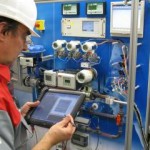
Aletheia was a leading innovation project, sponsored by the Federal Ministry of Education and Research, that aims at obtaining comprehensive access to product information through the use of semantic technologies. TECO researches in federating information from heterogeneous device such as sensor nodes and RFID tags. Together with ABB we work on platform independent solutions for more…
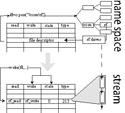
This project proposes a file system as an abstraction layer for a uniform way of accessing any system resource on wireless sensor nodes. Even functions and libraries can be represented and accessed in this uniform way allowing developers a novel way to design and implement applications. Tiny, Ressource poor sensor nodes require novel operating systems more…
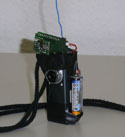
This project seeks to gather basic understanding in how far context aware camera systems are able to support human memory. The project seeks to develop a small wearable context aware camera device, gains insight into what activities are contributing to events we like to keep in memory, how to recognize these activities using a minimal more…
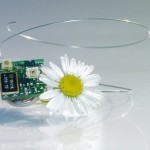
uParts are tiny little sensor network nodes that are very easy to deploy and run a 0-administration and low configuration (or 0-configuration when used with default) approach. The projects researches how to reach minimum deployment and maintenance costs of a sensor network and includes research on long lifetime hardware, 0-maintanance communication protocols, lower production costs more…

ContextAsAKey is an approach to reach ad-hoc security and privacy in a Ubiquitous Computing environment without any user involvement – management, configuration nor administration. The basic principle is the use of the common context that exist when computing devices are located close to each other in the same physical environment. Technically the system bases on more…

Particle Computer is an enabling platform for various scenarios related to Ubicomp. Particles are tiny wireless nodes where a huge variety of sensors can be attached. Further, the fully programmable micro controller accompanied by powerful libraries let novices as well as professionals implement applications in the fields of sensor networks, human-computer interaction, supply-chain management and more…

Rather than using a hierachical approach to resolve RFIDs indentification code to database information this project researches in using Peer-to-Peer technology. The project showed that privacy of information can be better ensured and higher reliability can be gained using such an approach. A query, which consists of an identification string, is sent to the network more…

ParticleBasic is an attempt to simplify the programming model of the Particle Computer and enable rapid prototyping of applications. It therefore consists of two major components: A small scale VM on the Particle Computer and an interpreter running on top of it. A compiler for the development platform (written in JAVA) that generates byte code more…
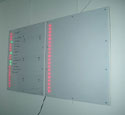
The In/Out Board is an ambient display showing the presence of persons in an office environment based on their activity. It integrates recognition of persons using RFID technology and PC based background services with an ambient display. Start/End: 2004 Partners: SAP AG Research Topics: RFID system, Integration of information infrastructure Application and economic dissemination: more…

In sensor networks, different types of sensors are used to capture events, recognize contexts, derive states of objects or monitor processes within application scenarios. The processes themselves are often very complex (e.g. in industrial applications) and a combination of sensor data from different sensor nodes is used to derive information regarding their states or properties. more…













